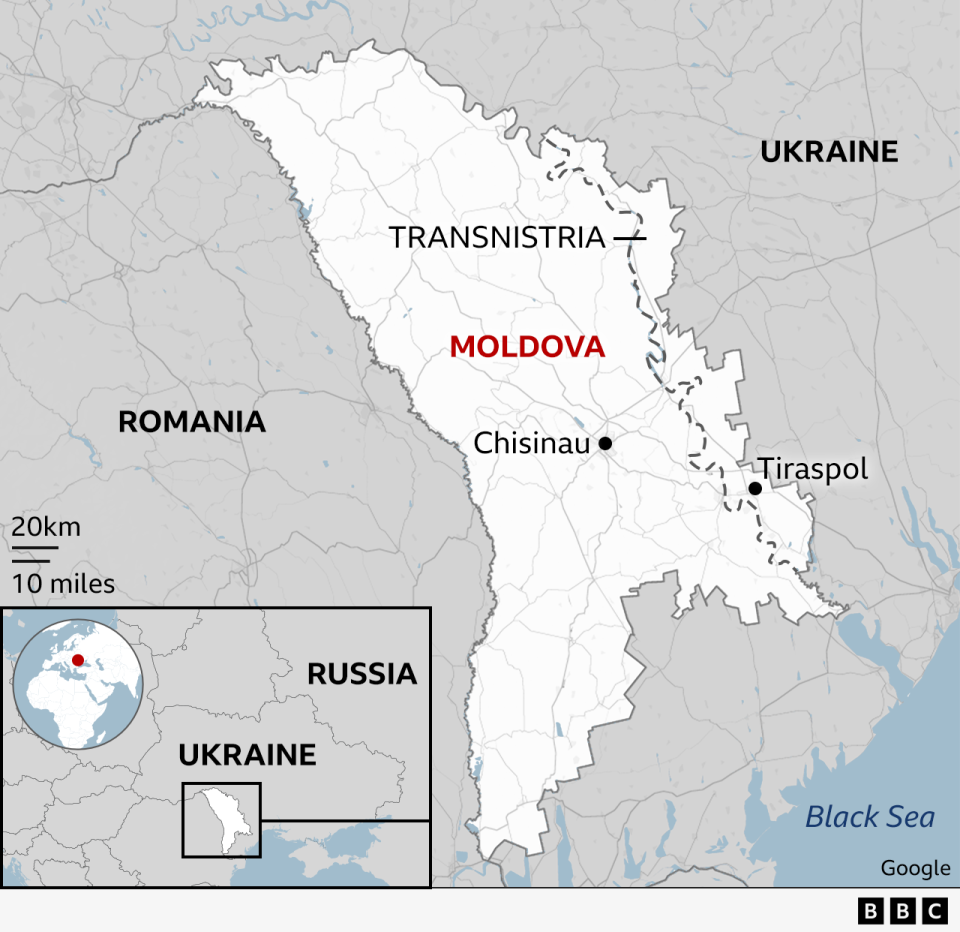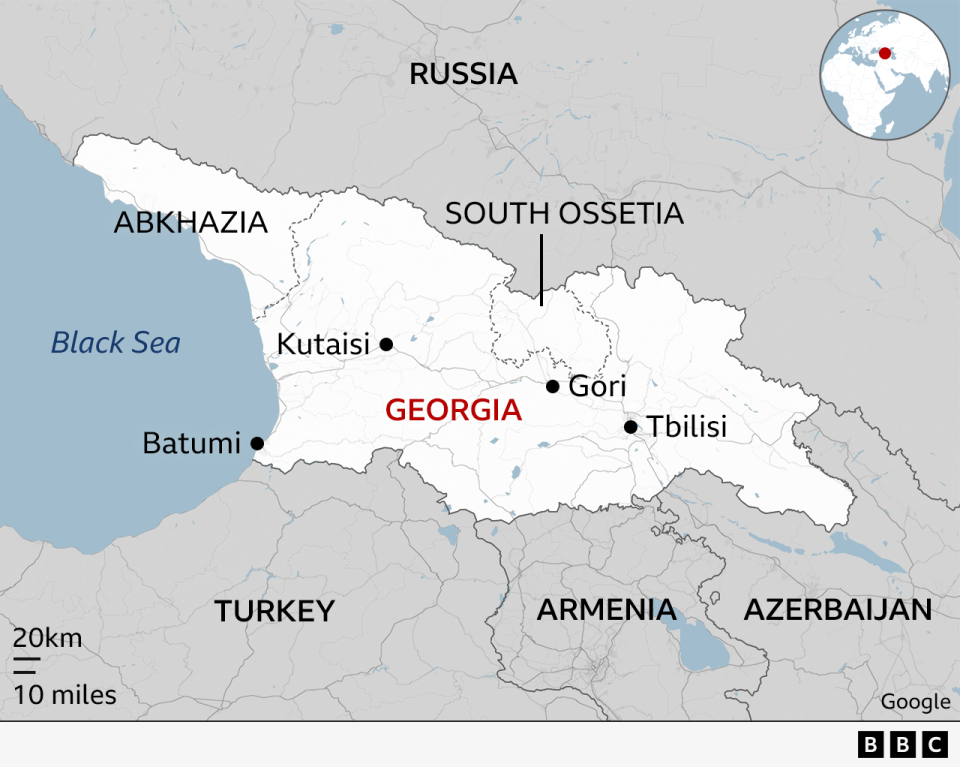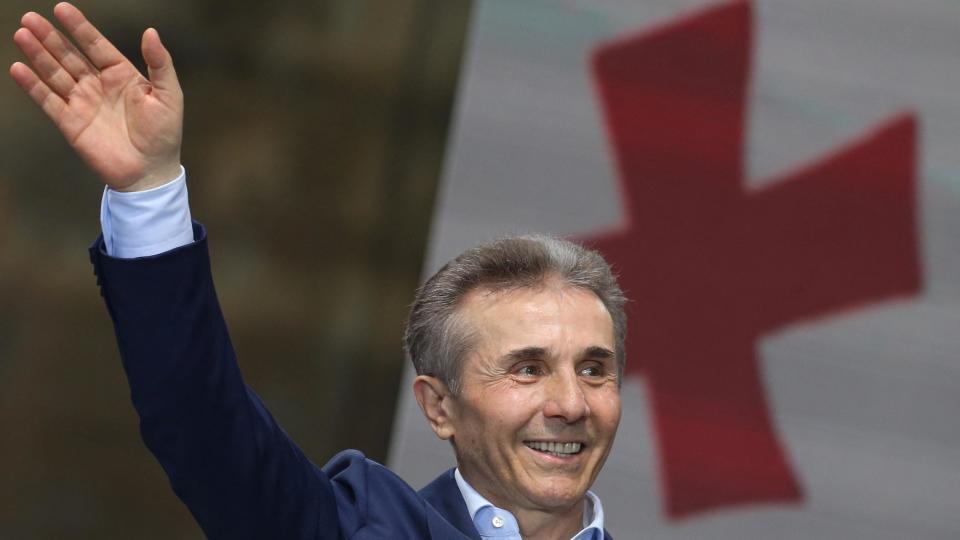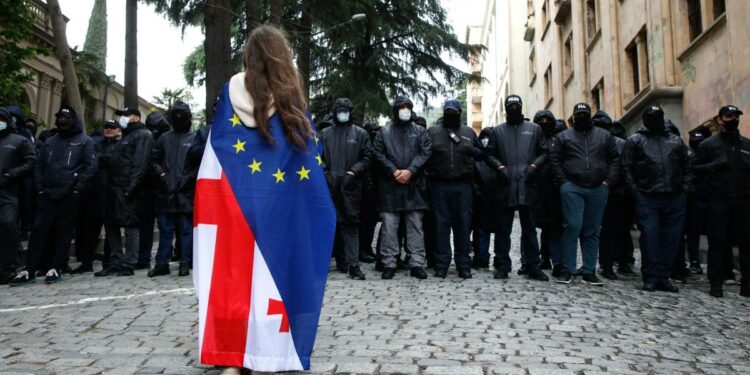Moldovans listen to a campaign speech in a park in Moldova’s capital Chisinau [Getty Images]
Pro-European forces in Moldova have long warned of Russian interference in the election and referendum vote. One Moldovan news website said the election campaign had been marred by Russia’s “most slanderous, most violent and disruptive destabilisation campaign since the country’s independence”.
Authorities have linked some cases of vandalism and disinformation campaigns on social media to Shor and to his alleged Kremlin backers.

[BBC]
Last month, Moldova’s chief of police Viorel Cernauteanu said 130,000 Moldovans had received money transfers from Russia – amounting to $15m – as bribes to vote for Russia-friendly candidates and against the EU referendum.
On Thursday, Mr Cernauteanu alleged that dozens of Moldovans had recently travelled to Moscow, ostensibly to attend “cultural exchange programmes”, but actually receiving training to stir violence ahead of the elections.
The Kremlin maintains it “does not interfere in other people’s affairs” and has accused Moldova’s authorities of “denying many citizens a right to say that they support having good relations with Russia”.
Georgia’s pivotal vote
There is a lot of stake for Georgians when they vote in parliamentary elections on Saturday 26 October.
This country of 3.7 million people has become highly polarised – with the governing party, Georgian Dream, accused of dismantling civil society and adopting Russia-style laws.
Opposition parties have sought to frame this vote as a choice between Europe and Russia – a label firmly rejected by Georgian Dream.
It was only last December that Georgians were celebrating the EU granting their country official candidate status, with polls suggesting support from at least 80% of Georgians.
By the summer, the EU had frozen that process, because of a Russia-style “foreign influence law” that brought tens of thousands of protesters onto the streets of the capital Tbilisi.
The law requires media and NGOs with foreign funding to register as acting in the interest of a foreign power. Since then Georgian Dream has also enacted a law curbing LGBT rights.
The US, EU and US have all issued warnings against backsliding from democracy. The EU’s ambassador in Tbilisi has warned it could temporarily suspend its visa-free regime with Georgia if the vote is not deemed free and fair. US President Joe Biden pointedly withdrew a recent invite to a reception to Georgia’s Prime Minister Irakli Kobakhidze.
Russia has accused the West of blatantly trying to put pressure on Georgia, denying that the Kremlin has itself has sought to do so.

[BBC]
But Georgian Dream maintains it is still on the path to joining the EU.
The prime minister promises a reset in relations with the West, and EU membership by 2030, as well as deepening co-operation with Nato.
The party has been in power since 2012, and if Georgian Dream wins a fourth consecutive election, party founder Bidzina Ivanishvili, a billionaire who made his fortune in Russia, has promised to ban opposition groups. But to do that they would need three-quarters of the seats in the 150-seat parliament to change the constitution.
The opposition itself is far from united, so while Georgian Dream has declined in popularity it still leads in the opinion polls.
Four opposition groups have a chance of securing the 5% of votes needed to get into parliament.
The biggest – United National Movement or UNM – is also considered the most divisive. Many voters still have bad memories of its nine years in power before Georgian Dream took office, so the other three opposition forces have shied away from forming a united front.
Coalition for Change, Strong Georgia and Gakharia for Georgia are all polling well but even if the four groups were to find common ground it might take months to form a government, clearing the way for a period of instability.
Although Georgians will be voting for the first time under a proportional representation system, seen by most parties as fairer, critics have complained that the party in power still maintains a grip on the media and controls the public space.

Bidzina Ivanishvili is a billionaire who made his fortune in Russia [Reuters]
![]()
Source link : http://www.bing.com/news/apiclick.aspx?ref=FexRss&aid=&tid=6711f4361c5141a09994981e83c2f15e&url=https%3A%2F%2Fnews.yahoo.com%2Fnews%2Ftwo-countries-face-momentous-votes-234218375.html&c=8960036047710531453&mkt=en-us
Author :
Publish date : 2024-10-17 21:32:00
Copyright for syndicated content belongs to the linked Source.


